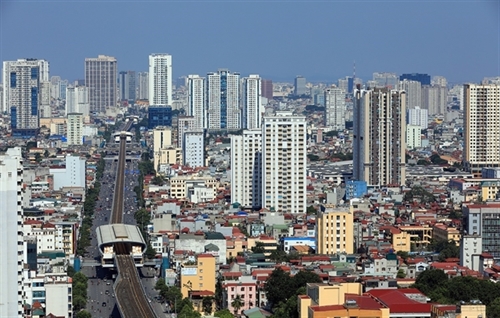Assoc. Prof. Dr. Tran Van Nam[2] and Dr. Trinh Minh Tam[3]
Current regulations
Technology evaluation constitutes an important stage of the process of commercialization and transfer of technologies and intellectual assets. Yet, Vietnam’s current policies on technology evaluation activities seem to be inadequate, particularly the lack of supportive measures of the State. This prompts the need to work out solutions to improve relevant regulations to promote these activities in the country. [1]
The transfer of technologies, particularly from abroad into Vietnam, has increasingly developed since the launch of the doi moi (renewal) cause. In the initial period of the renewal cause, technology transfer activities were carried out spontaneously without the State’s strict management. During that time, important technologies were often included in big bidding packages funded by the state budget, and the prices of technologies were incorporated together with equipment in the same bidding packages.
Since the enactment of the Law on Foreign Investment in Vietnam in 1996, technology transfer activities have incrementally increased while the demand for technology evaluation has risen. Under Government Decree 45 of 1998, providing in detail technology transfer activities, technology prices are set as ceiling prices, which are equal to 5 percent (or 8 percent in special cases as approved by the Prime Minister) of net selling prices. Net selling price is defined by law as the total selling price of a product or service that is created with the application of transferred technology as written in the sale invoice, minus taxes and expenses.
The setting of maximum technology prices is, on the one hand, beneficial to the technology transferee that has not much experience in negotiation of technology transfer contracts or technology evaluation. On the other hand, this regulation makes it hard to acquire high technologies or modern technologies as the prices of these technologies are of course higher than those of ordinary technologies and likely to exceed the ceiling prices. The transfer of technologies with excessively high prices is regarded as violating the law on technology transfer and will therefore be banned.
To deal with shortcomings of Decree 45, Government Decree 11 of 2005 abolished the provision on ceiling price. Instead, it allowed the price of technology to be agreed upon between the buyer and seller. Also, the 2006 Law on Technology Transfer is silent on prices of technologies put for transfer. It can be said that technology evaluation activities remain limited in Vietnam as it is a hard task that requires highly professional experts to perform.
Over the past years, not a few guidelines and policies on science and technology development have been issued, including regulations on evaluation of technologies and intellectual assets and management and development of the science and technology market. Accordingly, a technology evaluation organization is defined as an organization providing technology transfer and technology evaluation services in the capacity as an intermediary in the science and technology market, aiming to facilitate the transfer of technology.
To make it more specific, Article 32 of Government Decree 76 of 2018 sets two conditions on a technology price appraisal organization. First, it must have a certificate of eligibility for provision of price appraisal services under the law on price, if it is an enterprise, or a certificate of registration of science and technology activities, if it is a science and technology organization. Second, it must have at least two practicing price appraisers who have completed the program on updating of knowledge about technology and intellectual asset evaluation organized or recognized by the Ministry of Science and Technology. Meanwhile, the 2012 Law on Price states in Article 39 that a capable price appraisal enterprise must have at least three registered price appraisers.
In addition to legal documents on evaluation methods[4], the provisions concerning technology evaluation services are incorporated into some other legal documents’ contents on technology transfer, showing the State’s promotion for technology and intellectual asset evaluation activities. For instance, the Law on Technology Transfer sets conditions for an organization to carry out technology evaluation services[5], provides the rights and obligations of entities providing technology transfer services[6], and devotes a chapter to providing technology transfer contracts[7]. Meanwhile, the Commercial Law provides obligations of entities providing technology transfer services and obligations of brokerage and consultancy service users[8]; and prices of technology transfer consultancy and brokerage services[9]. Moreover, Government Decree 80 of 2021 detailing the Law on Support for Small- and Medium-sized Enterprises also provides incentives and support for these businesses.
It can therefore be noted that policies on technology and intellectual asset evaluation have facilitated not only this work but also the development of technology transfer consultancy and brokerage activities in general. Legal provisions regulating the transfer of technology ownership and use rights are fairly sufficient, facilitating the utilization and assignment of ownership rights or transfer of use rights over technologies. Furthermore, technology transfer contracts, procedures for grant of technology transfer contract registration certificates, procedures for approval and licensing of technology transfer, and contracts on transfer of ownership and use rights over objects of industrial property have also been provided in various legal documents[10].
However, the above documents remain too general on technology transfer activities. At present, there are few separate regulations on technology and intellectual asset evaluation as a type of technology transfer activities, particularly those on supportive measures of the State that can help boost technology evaluation activities in the country.
Particularly, tax regulations applicable to technology transfer activities have not yet fully reflected the State’s priorities for these activities and credit incentives are not yet accessible to technology evaluation organizations. In other words, it can be said that tax and credit policies are not really attractive for technology evaluation organizations to enter the technology transfer market.
Current regulations on the transfer of technology ownership and use rights appear not specific and clear enough. Most transactions related to technology and industrial property rights involve technology evaluation and industrial property rights but there is no legal document providing specific instructions on this issue. This is the biggest inadequacy seen in the practical transfer of ownership and use rights over technologies and industrial property rights[11].
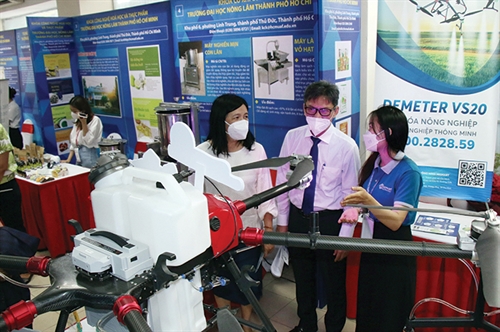 |
Solutions to improve the law on technology evaluation
Although the technology and intellectual asset evaluation in Vietnam emerged before the enactment of the 2005 Law on Intellectual Property, it has so far not conformed to set standards. To facilitate technology evaluation activities in Vietnam, the following solutions should be taken to improve legal provisions on technology and intellectual asset evaluation.
Firstly, it is required to concretize ownership rights over science and technology research outcomes in establishing a legal environment for technology acquisition and evaluation and technology transfer consultancy and brokerage for scientific and technological products. Specifically, current mechanisms and policies on science and technology activities aiming at the science and technology market in general and technology evaluation and technology transfer brokerage activities in particular should be improved on the basis of including market rules in current regulations, such as profit sharing after the assignment or transfer of science and technology research outcomes. At the same time, it is necessary to issue specific policies on technology evaluation consultancy and technology transfer brokerage activities serving small- and medium-sized enterprises, enterprises in key economic sectors, and enterprises in economic difficulty-hit areas, while further promoting the role of sectors and localities in the development of these activities.
Secondly, it is necessary to further improve the legal system on establishment and protection of industrial property rights in the direction of: (i) issuing consistent regulations on appraisal of registration applications; and (ii) harmonizing the provisions on industrial property of the Civil Code and Law on Intellectual Property, particularly those on property rights over inventions and bases for establishment of industrial property rights.
Thirdly, a national survey should be conducted to find out needs of businesses for technology evaluation consultancy and technology transfer brokerage. Survey results will help identify different levels and types of demands so as to devise appropriate policies. The State should enhance the development of baseline information systems for technology evaluation consultancy and technology transfer brokerage activities, attaching importance to technology forecasting and technology development plan. At the same time, it is a need to supplement and improve regulations on state management of technology evaluation consultancy and technology transfer brokerage activities. First of all, specific criteria on capacity and qualities required for entities engaged in these activities should be set forth.
Finally, certain scientific research institutions should be transformed into professional technology brokerage service organizations while researchers should be encouraged to form technology brokerage service agencies. At the same time, tax and credit incentives should be granted for technology transfer consultancy and brokerage activities.
It is also necessary to adopt plans on capacity building training for organizations engaged in technology evaluation consultancy and technology transfer brokerage activities. Such a plan should focus on legal issues in international technology transfer, technology transfer contract negotiation skills, technology seeking and selection steps and skills, and technology evaluation methods. In addition, policies to boost the formation of local and foreign organizations carrying out technology evaluation consultancy and technology transfer brokerage activities should be issued.-
[1] This research is financed by the National Foundation for Science and Technology Development (NAFOSTED).The Vietnamese version of this article was published on Tap chi Cong san (Communist Review), ISSN 2734-9071.[2] National Economics University.[3] Vietnam Center for Science and Technology Evaluation, Ministry of Science and Technology.[4] For example, the 2012 Law on Price and guiding Government Decree 89 of 2013; Ministry of Finance’s Circular 06/2014/TT-BTC of 2014 and Circular 10/2019/TT-BTC of 2019; and Joint Circular 39/2014/TTLT-BTC-BKHCN of 2014 of the Ministry of Science and Technology and Ministry of Finance.[5] Article 48.[6] Articles 46 and 47.[7] Chapter III: Articles 22 thru 34.[8] Articles 81 and 85.[9] Articles 86 and 87.[10] For instance, the 2017 Law on Technology Transfer and guiding Government Decree 76 of 2018; the 2005 Law on Intellectual Property (with its 2022 amendments) and guiding Government Decree 103 of 2006 amended by Decree 122 of 2010, Decree 105 of 2006 amended by Decree 119 of 2010; and Government Decree 154 of 2018 specifying investment and business conditions in the fields of state management by the Ministry of Science and Technology.[11] See also: Assoc. Prof., Dr. Tran Van Nam - Dr. Do Minh Tuan: Vietnam’s law on evaluation of inventions: inadequacies and solutions for improvement, Jurisprudence Journal, July 2022 issue.
